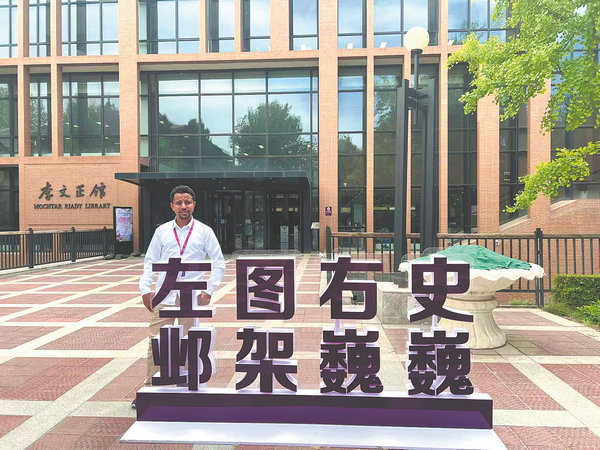

"There was no air conditioning — just a fan attached to a water pipe that lowered the temperature by two or three degrees. Every morning, we filled large plastic Coca-Cola bottles with water from the yard faucet and let the silt settle for a few hours before drinking."
Yet Li felt genuinely elated when locals passing by on the street would call out to him, using a word in the local dialect meaning "friends".
"They told me about Charles Gordon, a British officer and colonial figure who had been active in China during the 1860s and was later killed in 1885, while he was Governor of Sudan, by local forces resisting Egyptian-British rule," Li says. "People made a deliberate effort to draw a parallel, linking the histories of China and Sudan."
"In China we saw hope — for nearly a century, Western powers and Japan had sought to divide and subjugate it, yet today, China stands transformed by its own achievements," Abdalla says. "Solidarity — that's what I witnessed in China in the aftermath of the Wenchuan earthquake, and that's what I want for my country."
He is referring to the catastrophic 7.9-magnitude earthquake that struck Sichuan province on May 12, 2008, claiming nearly 70,000 lives and injuring hundreds of thousands. Abdalla, who had arrived in China the year before as an exchange student at Beijing Jiaotong University, watched in awe as people formed endless lines in the streets, quietly waiting to donate to the victims.
That was also the year Beijing hosted the Summer Olympics, and Abdalla watched the city "changing by the day".